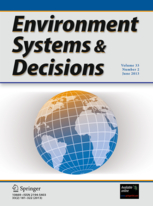Erb Faculty Director, Joe Arvai published in Environment Systems & Decisions
Supporting international development decisions.
 For more than half a century, research and practice in international development has focused on improving the quality of life of people living in developing regions of the world. Recently, researchers and practitioners—from the public and private sectors, and NGOs—have recognized the need to blend insights from experts and community stakeholders in development decisions.
For more than half a century, research and practice in international development has focused on improving the quality of life of people living in developing regions of the world. Recently, researchers and practitioners—from the public and private sectors, and NGOs—have recognized the need to blend insights from experts and community stakeholders in development decisions.
Research in the decision sciences tells us that these kinds of multiparty and multiattribute decisions are extremely challenging. However, recent experience using structured decision-making approaches suggests that the quality of both expert and stakeholder input, and resulting decisions, can be improved by ensuring that people address a series of basic principles relating to identifying objectives and their associated attributes, estimating the consequences of proposed actions, and directly confronting trade-offs that arise during the evaluation of sustainable development alternatives. A case in point is the interplay between large multinationals and small local producers in the development of agricultural resources in Latin America. In Costa Rica, Joe Árvai and his team worked with corporations, small agricultural producers, local stakeholders, and the government to chart a course for more sustainable agricultural production.